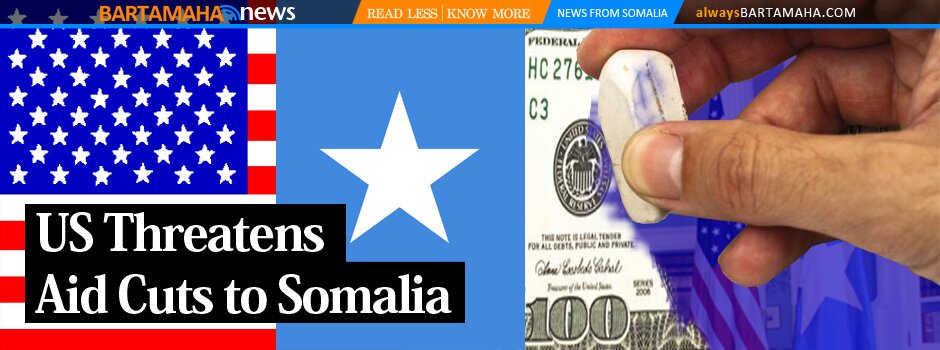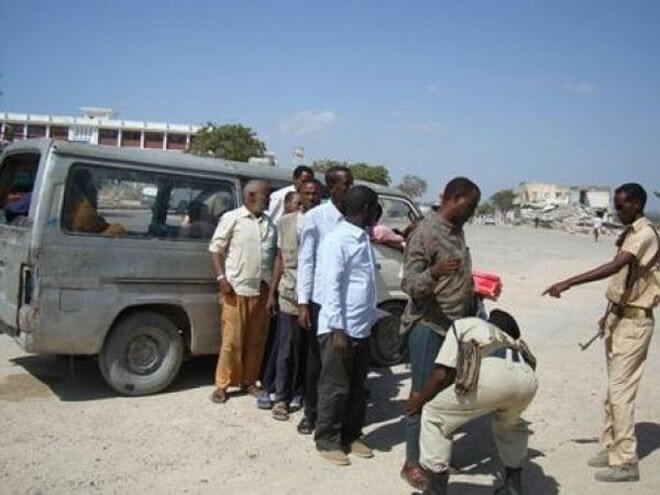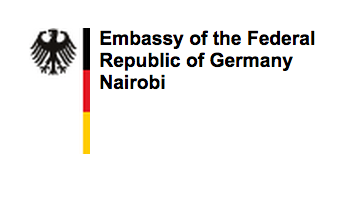Security Council expands sanctions on Eritrea
 The U.N. Security Council on Monday expanded sanctions against Eritrea for continuing to provide support to Islamist militants, including al Shabaab, in the virtually lawless Horn of Africa nation of Somalia.
The U.N. Security Council on Monday expanded sanctions against Eritrea for continuing to provide support to Islamist militants, including al Shabaab, in the virtually lawless Horn of Africa nation of Somalia.
The council resolution – which got 13 votes in favor, none against and two abstentions – was diluted from earlier drafts that sought to ban investment in Eritrea’s mining industry and outlaw imports of its minerals. Asmara denies aiding al Shabaab or any other militant groups in Somalia.
The original draft, circulated by Gabon in October, also sought to block payment of a tax Eritrea puts on remittances from its nationals abroad.
The final version, which expands sanctions imposed two years ago, simply requires countries to make their companies involved in mining in Eritrea exercise “vigilance” to ensure funds from the sector are not used to destabilize the region.
The steps passed two years ago included an arms embargo.
Diplomats said Russia and China, both of which abstained from Monday’s vote, opposed sanctioning the mining sector and remittances and that some European countries and the United States also felt the original draft was too tough and could penalize the Eritrean people.
On remittances, the resolution calls on states to act to ensure Eritrea ceases “using extortion, threats of violence, fraud and other illicit means to collect taxes outside of Eritrea from its nationals.” It also “condemns” Eritrea for using a remittance tax to fund mischief in the Horn of Africa.
Eritrea is seen to be on the brink of a minerals boom that could revive its struggling economy, while remittances it gets from its large diaspora in the West and Middle East are its biggest source of foreign exchange.
The country’s most advanced mining project, Bisha, believed to contain gold, copper and zinc, is run by Canada’s Nevsun Resources Ltd. Earlier this year, Eritrea granted Australia’s Chalice Gold Mines two new exploration licenses in a nearby location.
LITANY OF CRITICISM
U.S. Ambassador to the United Nations Susan Rice welcomed the resolution’s adoption, saying “our goal is to show Eritrea that it will pay an ever higher price for its actions.”
British envoy Mark Lyall Grant said the council could pass “additional measures if there is evidence of further non-compliance.”
The vote came after top officials from Somalia, Djibouti, Ethiopia, Kenya and Uganda lined up earlier on Monday to criticize Eritrea and urge the council to pass the resolution.
The president of Somalia’s transitional government, Sheikh Sharif Ahmed, told council members that Eritrea had been undermining his government’s efforts to reach reconciliation agreements with Islamist groups like al Shabaab.
“The support they find from the Eritrean regime has prevented such reconciliation,” Ahmed said.
Ethiopia’s Prime Minister Meles Zenawi also blasted Eritrea and its President Isaias Afewerki. Speaking by video link, he described Asmara’s approach to the Horn of Africa as “lawlessness and reckless disregard for international law.”
Afewerki had also asked to address the council but Eritrea complained he was not given enough time to come to New York.
The push for new sanctions followed a report by a U.N. monitoring group in July that found Eritrea continued to provide political, financial, training and logistical support to al Shabaab and other armed groups in Somalia.
Eritrea’s U.N. ambassador, Araya Desta, told Reuters on Friday the allegations were “ridiculous” and the draft resolution “outrageous.”
Eritrea has blamed its rival, Ethiopia, from which it split away in 1993, for the sanctions drive.
___
AP
Comments
comments
 Calendar
Calendar






































